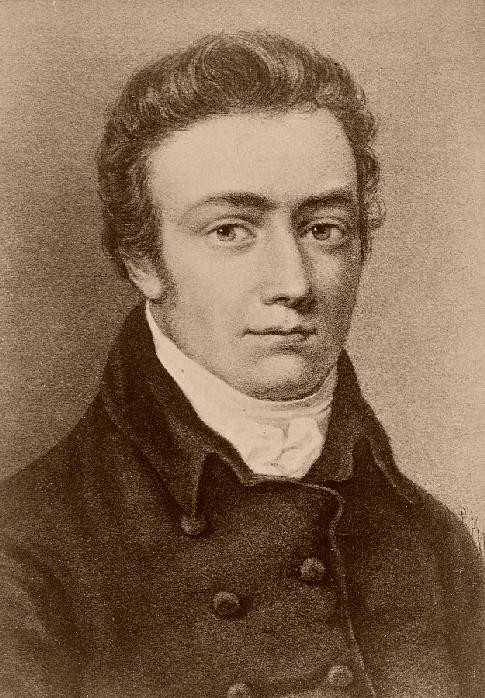Samuel Taylor Coleridge Quotes
Part I, l. 48
Christabel (written 1797–1801, published 1816)
“Humour is consistent with pathos, whilst wit is not.”
Said in 1821, as quoted in Letters and Conversations of S.T. Coleridge (1836) by Thomas Allsop
15 March 1834
Table Talk (1821–1834)
"Frost at Midnight", l. 72 (1798)
To a Lady, Offended by a Sportive Observation
Bartlett's Familiar Quotations, 10th ed. (1919)
Aids to Reflection (1829), comment to Aphorism 7
On the Principles of Genial Criticism (1814)
"The Homeric Hexameter" (translated from Schiller) (1799)
“Indignation at literary wrongs I leave to men born under happier stars. I cannot afford it.”
Source: Biographia Literaria (1817), Ch. II
" Fears in Solitude http://etext.lib.virginia.edu/stc/Coleridge/poems/Fears_in_Solitude.html", l. 81 (1798)
3 January 1834
Table Talk (1821–1834)
“Milton had a highly imaginative, Cowley a very fanciful mind.”
Source: Biographia Literaria (1817), Ch. IV
Wallenstein, part i, Act ii, scene 6
Bartlett's Familiar Quotations, 10th ed. (1919)
“In many ways doth the full heart reveal
The presence of the love it would conceal.”
Poems Written in Later Life, motto (1826)
Source: Biographia Literaria (1817), Ch. XV
Wallenstein, part i. Act ii, scene 4 (translated from Schiller)
Bartlett's Familiar Quotations, 10th ed. (1919)
“Carv'd with figures strange and sweet,
All made out of the carver's brain.”
Part I
Bartlett's Familiar Quotations, 10th ed. (1919), Christabel
“Saints will aid if men will call:
For the blue sky bends over all!”
Part I, l. 330
Christabel (written 1797–1801, published 1816)
“Summer has set in with his usual severity.”
Letter to Charles Lamb (1826)
Letters
2 January 1833
Table Talk (1821–1834)
“Ye living flowers that skirt the eternal frost.”
"Hymn in the Vale of Chamouni" (1802)
21 September 1830
Table Talk (1821–1834)
1 November 1833
Table Talk (1821–1834)
“O lady! we receive but what we give
And in our life alone does Nature live.”
St. 4
Dejection: An Ode (1802)
“That willing suspension of disbelief for the moment, which constitutes poetic faith.”
Source: Biographia Literaria (1817), Ch. XIV
Fancy in Nubibus
Bartlett's Familiar Quotations, 10th ed. (1919)
i.e., by super-inducing on the animal instinct the principle of self-consciousness
Aids to Reflection (1873), footnote to Aphorism 106 part 13
“Intense study of the Bible will keep any writer from being vulgar, in point of style.”
Specimens of the table talk of the late Samuel Taylor Coleridge, June 14, 1830, (1835) p. 177
“The Earth with its scarred face is the symbol of the Past; the Air and Heaven, of Futurity.”
2 June 1824
Table Talk (1821–1834)
12 May 1830
Table Talk (1821–1834)
Letter to Thomas Allsop (30 March 1820)
Letters
Part II, l. 408
Christabel (written 1797–1801, published 1816)
Part II
Bartlett's Familiar Quotations, 10th ed. (1919), Christabel
“A charm
For thee, my gentle-hearted Charles, to whom
No sound is dissonant which tells of life.”
This Lime-tree Bower my Prison
Bartlett's Familiar Quotations, 10th ed. (1919)
“My eyes make pictures when they are shut.”
A Day-Dream
Bartlett's Familiar Quotations, 10th ed. (1919)
“It is a flat'ning Thought, that the more we have seen, the less we have to say.”
Letter to James Gillman (9 October 1825)
Letters
Letter to William Sotheby (13 July 1802)
Letters
“Each matin bell, the Baron saith,
Knells us back to a world of death.”
Part II
Bartlett's Familiar Quotations, 10th ed. (1919), Christabel
"Anima Poetæ : From the Unpublished Note-books of Samuel Taylor Coleridge" (1895) edited by Ernest Hartley Coleridge, p. 238
